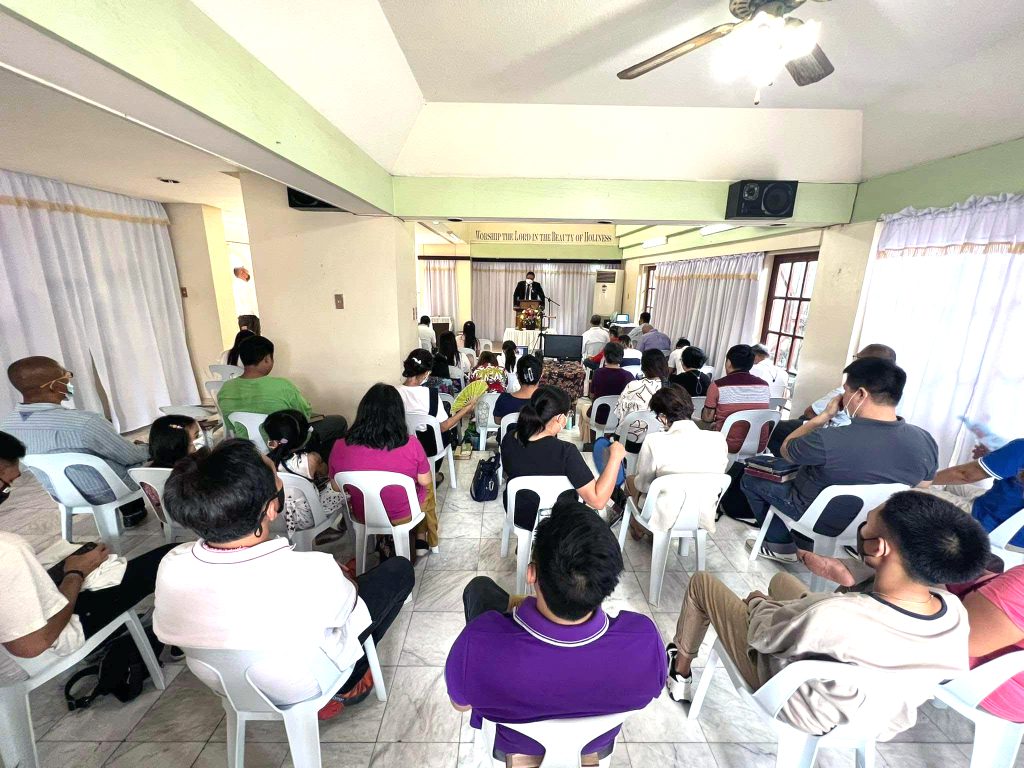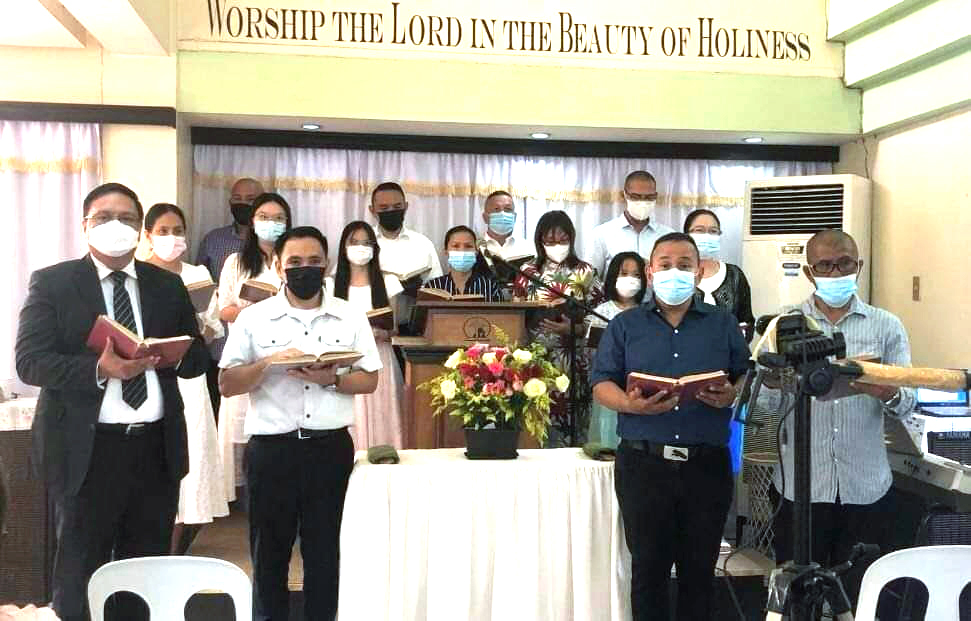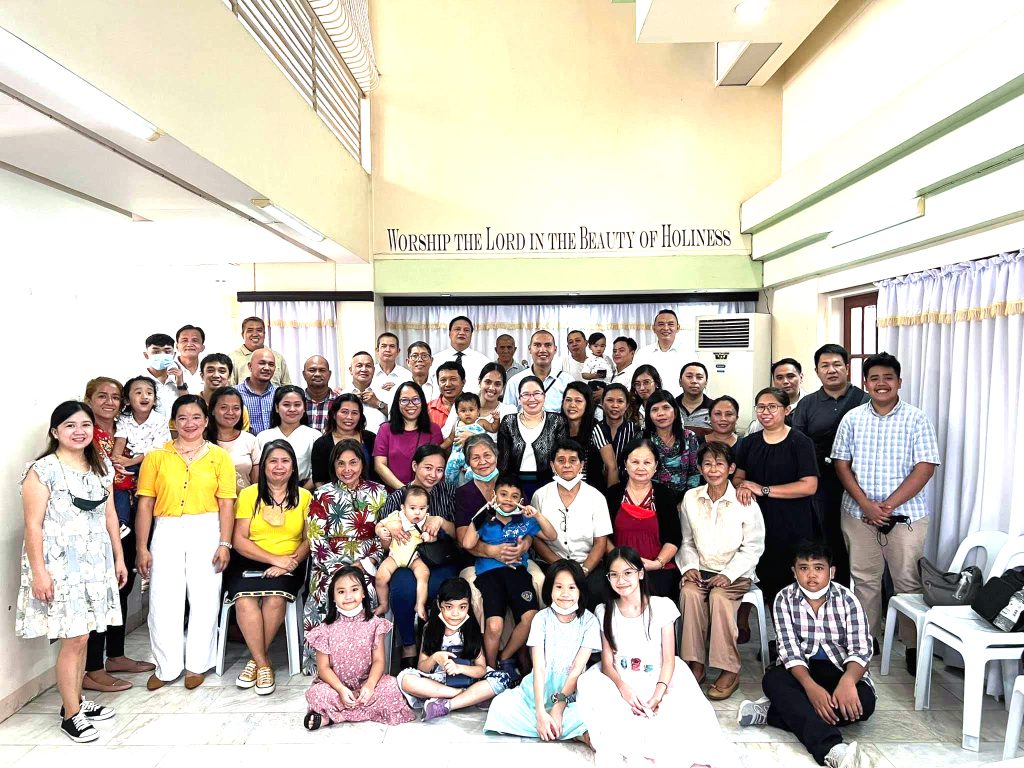Studying the Scriptures and serving the Lord Jesus Christ are integral to the life of those whom the Lord has called into the ministry of the Word. Serving God ought to be supplemented with studying of the holy Scriptures so that the servants of God will know and do His blessed will rather than their own! While every born-again Christian has been redeemed to serve the LORD, not all are called into serving Him in the ministry of the Word. This ministry of the Word is to be complemented with continuous prayer (cf. Acts 6:4). Therefore, I am very thankful to the LORD my God for opening this door of learning again to me in the Far Eastern Bible College (FEBC), with the support of our beloved Pastor and the Board of Elders in Gethsemane Bible-Presbyterian Church (GBPC).
“To every thing there is a season, and a time to every purpose under the heaven … and a time to build up” (Ecclesiastes 3:1, 3b). “Re-signing” to study God’s perfect Word in FEBC is indeed a God-given privilege! One reason for returning to study is to equip myself and be rooted and built up in the knowledge of Christ Jesus, my Lord and Saviour. Re-learning the biblical doctrines of the Reformed faith which I have been taught will surely strengthen the foundations that were earlier built. It would be like the reminder of Paul to Timothy, “And the things that thou hast heard of me among many witnesses, the same commit thou to faithful men, who shall be able to teach others also” (2 Timothy 2:2). It will be very refreshing for me to hear again those wonderful teachings which we profess and hold on to! Moreover, there might be things for me to unlearn as well if I have unconsciously come to know them. Jesus said, “Every branch in me that beareth not fruit he taketh away: and every branch that beareth fruit, he purgeth it, that it may bring forth more fruit” (John 15:2). In the process, there would be some painful pruning or “sharpening”, yet it is needful! “Study to shew thyself approved unto God, a workman that needeth not to be ashamed, rightly dividing the word of truth” (2 Timothy 2:15). In this regard, I long for your continuous prayer that the LORD sustains me both in college and in church for the next three years. It is a heavy responsibility to study the Word, not to mention to serve the LORD at the same time.
Next, there is nothing more meaningful and interesting in the life of a person called of the LORD into the ministry of the Word than the study of theology. To study the Bible continuously is joy unspeakable, especially when doing so with a grateful and prayerful heart together with many others. “As ye have therefore received Christ Jesus the Lord, so walk ye in him: rooted and built up in him, and stablished in the faith, as ye have been taught, abounding therein with thanksgiving” (Colossians 2:6-7). Indeed, I am very thankful to the LORD for this opportunity to return to my alma mater, FEBC, to continue and complete the Master of Divinity (MDiv) programme, which I had started but left stranded for a while. “A man’s heart deviseth his way: but the LORD directeth his steps” (Proverbs 16:9). As much as there is joy within, fear is not absent either! The concerns regarding the ability to cope with all the demands during the course of study, especially in the subjects of Greek and Hebrew, are real but I trust in the LORD for help. For His grace is ever sufficient, and He “is my refuge and strength, a very present help in trouble” (Psalm 46:1).
The ministry of the Word to the inmates in Changi Prison Complex continues on Wednesday afternoons and sometimes on other days. The LORD is pleased to bless this work and has brought some of those inmates to our midst. Among them is Bro Vijay, who is attending our church service on Sundays and studying in FEBC on Thursday evenings. Moreover, teaching children from the Gospel of John during GCM on Saturdays, held concurrently with various fellowship gatherings, remains unaffected. May the LORD be pleased to save the souls of our young ones through the teaching and preaching of His infallible and inerrant Word, and even to call some to serve Him one day!
Serving the LORD gladly must be the desire of every born-again believer. It is the reasonable service of every saint to learn good doctrines of the Bible, and to present himself according to the truth thereof to serve God as a living sacrifice, holy, acceptable unto Him (cf. Romans 12:1-2). Moreover, having learnt all these wonderful teachings from godly men in the faith, let us pass it on to the next generation for the blessings of God’s people, and for the extension of His kingdom here on earth. May the LORD our God be praised as all glory and honour belong to Him, the living and true God!




